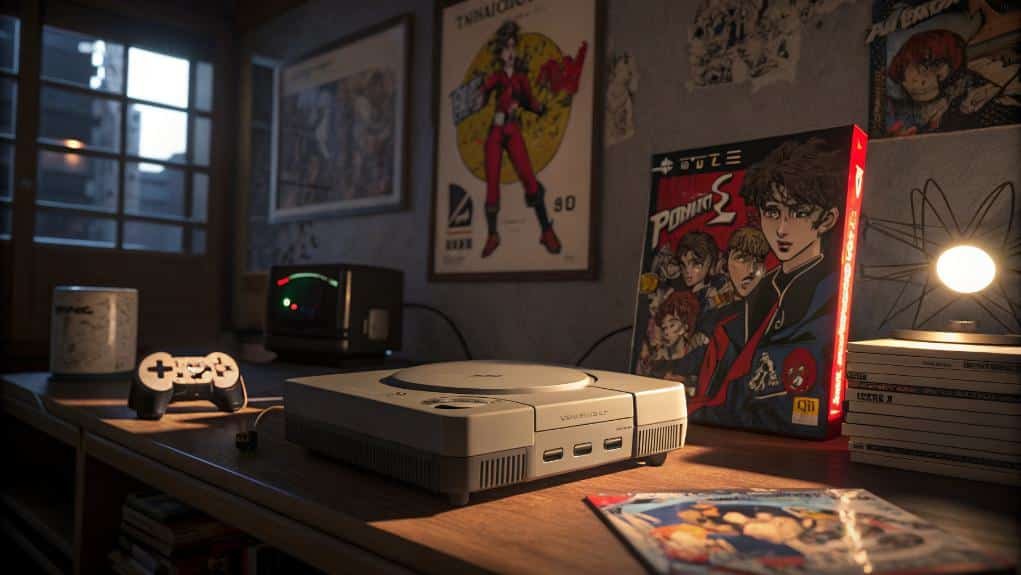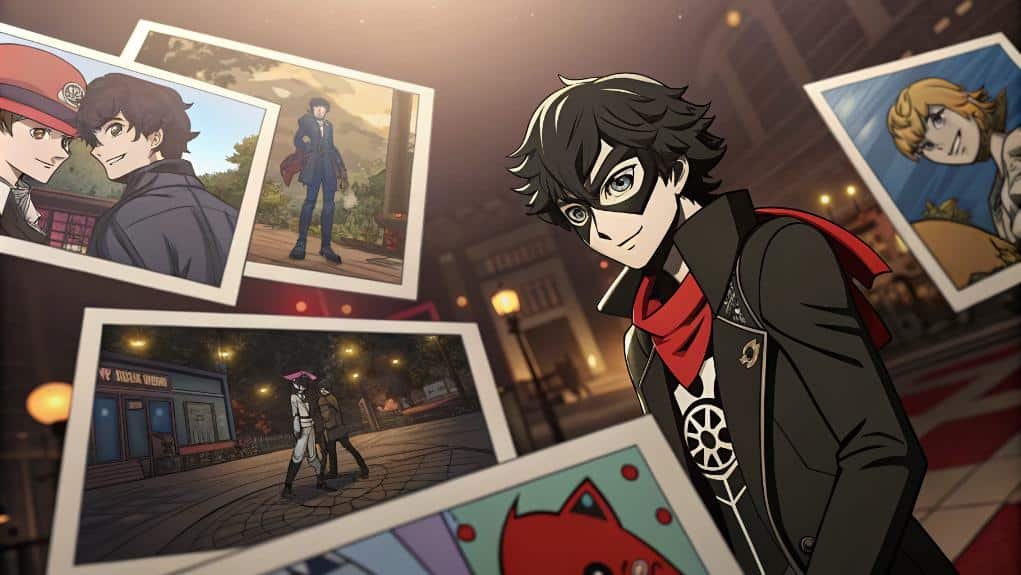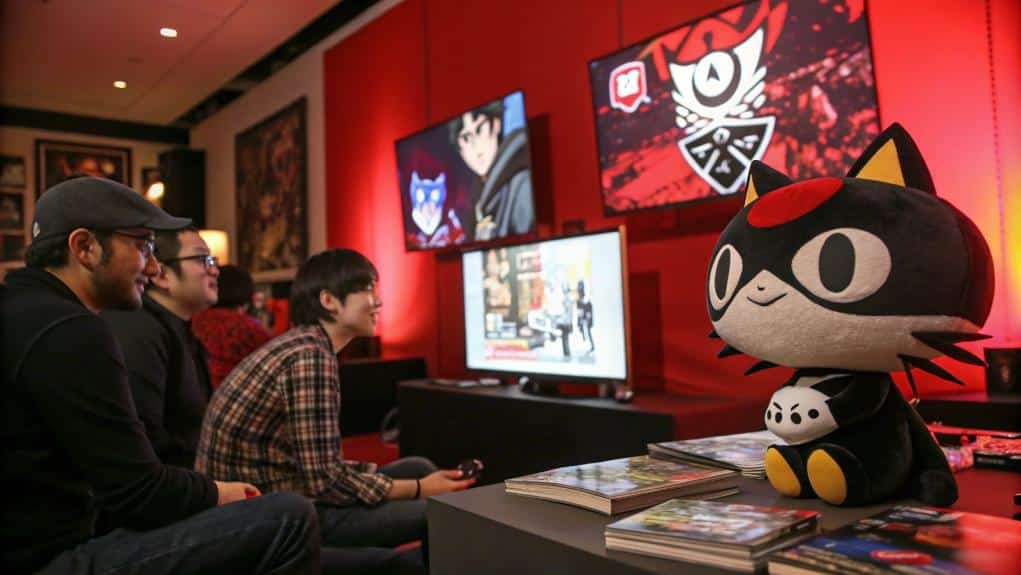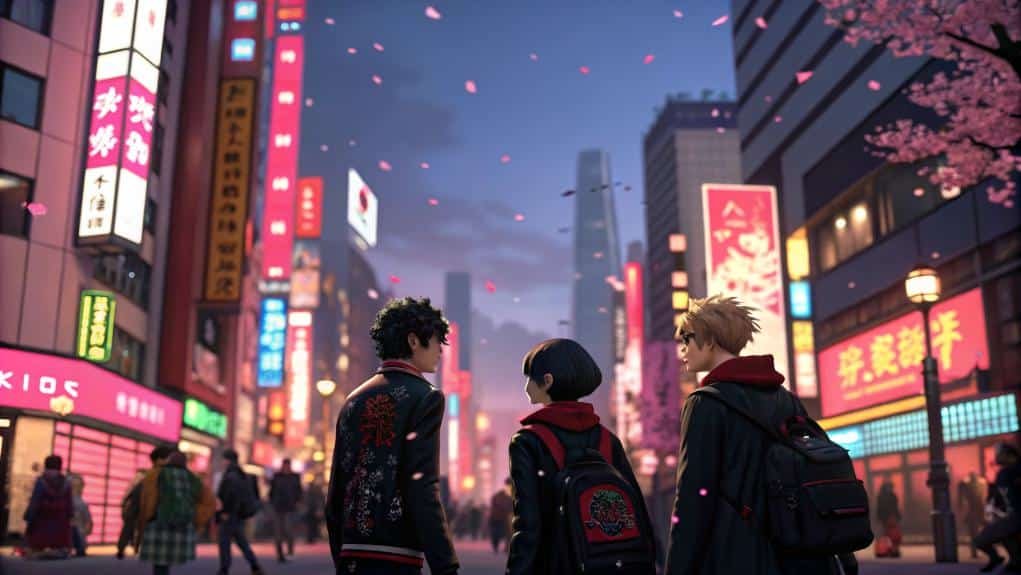The history of Persona 5 illustrates its transformation from a revolutionary RPG into a major cultural force since its Japanese release in September 2016. Directed by Katsura Hashino, the game gained acclaim for its innovative turn-based combat and rich storytelling, selling over 7.2 million copies by April 2023. Persona 5 Royal, launched in 2020, expanded on the original with new content and gameplay tweaks. The game’s themes of rebellion and personal growth resonated deeply, creating a dedicated fanbase. This significance extends beyond gaming, influencing mental health discourse and inspiring spin-offs. There’s much more to explore about this iconic series.
Key Takeaways
- Persona 5 was released in Japan on September 15, 2016, revitalizing the Persona series with enhanced graphics and gameplay.
- An updated version, Persona 5 Royal, launched on March 31, 2020, adding new content and gameplay adjustments.
- The game features a turn-based combat system, the Press Turn System, and Persona Fusion for strategic gameplay.
- The narrative follows high school students, the Phantom Thieves, as they rebel against societal corruption in modern-day Tokyo.
- Persona 5 has spawned multiple spin-offs and adaptations, including Persona 5 Strikers and anime, significantly impacting the JRPG genre.
The Original Game

The original game, released in 2016 by Atlus, marked a significant milestone in the Persona series, revitalizing interest with its innovative blend of gameplay mechanics and compelling narrative.
Set in modern-day Tokyo, the story follows Joker, a high school student entangled in a political scandal. Alongside his allies, the Phantom Thieves, he initiates a mission to confront societal corruption through supernatural means, utilizing Personas—manifestations of their inner psyches.
Character development plays a pivotal role in the narrative, as each Phantom Thief faces personal challenges while growing into their roles. The gameplay intricately weaves life-simulator elements with dungeon exploration, allowing players to deepen relationships with confidants and enhance their abilities. This blend of gameplay mechanics was further refined in Persona 5 Royal, which introduced new characters and expanded the narrative.
This duality not only enriches the gameplay experience but also reinforces the game’s thematic exploration of rebellion, social change, and personal growth.
Atlus draws inspiration from historical and fictional figures, further adding depth to the Personas and enhancing the narrative’s richness.
This seamless integration of character arcs and thematic elements makes Persona 5 a standout title, setting a new standard for JRPGs and firmly establishing its legacy within the genre.
Enhancements and Spin-offs
Numerous enhancements and spin-offs have emerged from the success of Persona 5, further enriching the franchise and expanding its reach. The release of Persona 5 Royal on March 31, 2020, exemplifies this evolution, offering new content, gameplay adjustments, and character expansions that integrate seamlessly with the original narrative. Critics hailed it as the definitive version of the game.
| Type of Game | Key Features |
|---|---|
| Persona 5 Royal | Extra story sections, expanded soundtrack, character enhancements |
| Persona 5 Strikers | Action-based combat, direct sequel to Persona 5 |
| Persona Q2: New Cinema Labyrinth | Dungeon crawler featuring characters from multiple Persona titles |
Other spin-off innovations include Persona 5: Dancing in Starlight, Persona 5 Tactica, and Persona 5: The Phantom X, each introducing unique gameplay mechanics and new storylines. By revisiting familiar locations and proposing collaborations with various developers, these spin-offs not only expand the Persona universe but also cater to diverse gaming audiences. The introduction of new characters in Persona 5: The Phantom X demonstrates how the franchise continues to explore innovative storytelling methods. As the franchise continues to grow, the potential for future developments remains promising.
Chronological Story Timeline

Building on the expansions introduced in spin-offs like Persona 5 Royal, the chronological story timeline of Persona 5 unfolds in a richly detailed manner that captures the growth of its characters and the overarching narrative.
The journey begins in April, with Joker’s arrival at Shujin Academy, where he befriends key characters like Ryuji and Ann. This initial phase sets the stage for character development, as the Phantom Thieves confront societal injustices.
As the timeline progresses into the summer months, new relationships emerge, particularly with Futaba and Haru, highlighting the importance of camaraderie amid challenges. Notably, the game became a commercial success, selling over 3.2 million copies(3.2 million copies) worldwide by 2021.
The narrative themes deepen in the fall, with the team facing Shido’s palace and grappling with personal stakes, culminating in Joker’s capture.
The added semester in Persona 5 Royal enriches the story, focusing on Maruki’s heart change and introducing new conflicts that further develop the characters.
Spin-offs like Persona 5 Strikers and Tactica expand on these themes, following the Phantom Thieves as they navigate new adventures.
Ultimately, the timeline not only showcases individual arcs but also reflects the broader narrative themes of rebellion and redemption woven throughout the series.
Gameplay Mechanics Overview
Within the rich tapestry of gameplay mechanics in Persona 5, players encounter a dynamic battle system that emphasizes strategic decision-making and character synergy. The game utilizes the Press Turn System, where exploiting enemy weaknesses leads to extra turns, allowing for a tactical edge. This system, combined with the Baton Pass mechanic, encourages players to develop intricate battle strategies that maximize damage output and resource efficiency.
Key gameplay elements include:
- Press Turn System: Exploit weaknesses for extra turns.
- Baton Pass: Transfer turns between party members for strategic combos.
- All-out Attack: Execute devastating team attacks when all enemies are down.
- Persona Fusion: Collect and combine personas to create stronger allies.
- Confidant System: Strengthen relationships to enhance abilities and persona capabilities.
Persona fusion plays an essential role, providing players with the opportunity to craft unique personas with distinct traits. Additionally, the inclusion of a more complex persona system in Persona 5 compared to its predecessor enhances the overall strategic depth of the game. This depth, alongside the exploration of hand-crafted dungeons and the Metaverse, guarantees an enchanting journey. By blending strategic combat with character development, Persona 5 offers a rich, immersive experience that challenges players to adapt and grow throughout their adventure.
Impact and Reception

Since its release in 2016, Persona 5 has garnered considerable acclaim for its innovative blend of gameplay, storytelling, and visual artistry. Critics have lauded its stylish character designs and vibrant environments, contributing to a visual presentation that stands out in the gaming landscape. The game’s deep themes of rebellion and societal critique resonate with players, establishing a strong emotional connection that many describe as transformative. Notably, the game’s exploration of Japanese societal issues enriches its narrative depth, although it may limit universal interpretation.
With over 7.2 million units sold by April 2023, Persona 5 has considerably boosted the popularity of the Persona series and is regarded as one of the greatest video games of all time. Its cultural influence extends beyond gaming, inspiring discussions around mental health awareness and encouraging social change among its audience. Players often cite the game’s exploration of real-world issues, such as depression and societal oppression, as particularly relevant to their lives.
The community surrounding Persona 5 thrives on ongoing debates about its themes, showcasing the game’s profound impact. As it continues to inspire sequels and spin-offs, the legacy of Persona 5 solidifies its role as a benchmark for narrative-driven gaming, reshaping the landscape for future titles.

